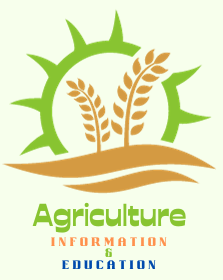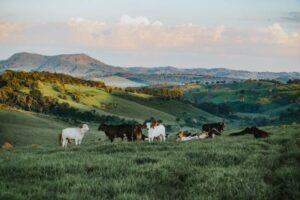Integrated Farming System: A Holistic Approach to Sustainable Agriculture
Introduction
Sustainable agriculture is at the forefront of addressing the challenges posed by a growing global population, climate change, and the need to ensure food security. In this context, Integrated Farming Systems (IFS) have emerged as a holistic and sustainable approach that integrates various agricultural activities to optimize resource utilization, enhance productivity, and minimize environmental impact.
Components of Integrated Farming System
Crop Cultivation
The foundation of an Integrated Farming System lies in diversified cropping systems. Farmers strategically plan crop rotations and intercropping to maximize the efficient use of land and other resources. By cultivating a mix of cereals, pulses, oilseeds, and vegetables, farmers not only ensure a diverse and nutritious food output but also contribute to improved soil health. Crop residues left after harvest can be used as feed for livestock or as organic mulch, enhancing soil fertility and structure.
Animal Husbandry
Integrating livestock into the farming system is a key element of IFS. Cattle, poultry, goats, and other livestock are kept on the farm, creating a symbiotic relationship between crops and animals. Livestock provide organic manure and help in nutrient cycling, while crop residues and agro-industrial by-products serve as valuable feed for the animals. This integration reduces the need for external inputs, enhances nutrient recycling, and promotes a closed-loop system.
Agroforestry
Agroforestry, the practice of integrating trees and shrubs into agricultural landscapes, is another vital component of IFS. Trees and shrubs serve multiple purposes, providing timber, fuelwood, fodder, and additional income sources for farmers. Beyond economic benefits, agroforestry contributes to soil conservation, biodiversity conservation, and microclimate improvement. The presence of trees on the farm can also help in windbreaks, reducing soil erosion and protecting crops.
Aquaculture
The integration of aquaculture, or fish farming, within the farming system is a sustainable practice that enhances overall productivity. Fish ponds can be integrated with other farming components, such as crop fields or livestock areas. Fish waste serves as an excellent organic fertilizer for crops, closing the nutrient cycle. Additionally, crops can provide shade and reduce water temperature, creating a favorable environment for fish. This integration not only diversifies farm products but also promotes efficient resource utilization.
Organic Farming
Emphasizing organic farming practices is a fundamental principle of IFS. Farmers reduce or eliminate the use of synthetic inputs such as chemical fertilizers and pesticides. Instead, they focus on organic manure, compost, and biofertilizers to enhance soil health and fertility. This approach not only minimizes environmental pollution but also contributes to the production of healthier and more nutritious food. Organic farming is inherently aligned with the principles of sustainability, as it promotes long-term soil health and resilience.
Water Management
Efficient water management is crucial for sustainable agriculture, and IFS incorporates various techniques to optimize water use. Practices such as drip irrigation and rainwater harvesting help conserve water resources. Integration of water use among different farming components ensures that water is utilized judiciously. For example, wastewater from aquaculture can be used to irrigate crops, creating a closed-loop system that maximizes water efficiency. Such water management practices contribute to the sustainability of the entire farming system.
Benefits of Integrated Farming System
Resource Efficiency
One of the primary benefits of IFS is the optimal utilization of resources. The synergistic interactions between different components result in a more efficient use of land, water, and nutrients. For example, livestock contribute organic manure to crops, while crop residues and by-products serve as feed for animals. This integrated approach minimizes waste and maximizes resource use, leading to increased overall efficiency.
Sustainability
IFS embodies the principles of sustainability by reducing reliance on external inputs, minimizing the use of synthetic chemicals, and promoting organic farming practices. The diversified and integrated nature of the system ensures that it is more resilient to external shocks, contributing to the long-term sustainability of agricultural practices. By fostering a balanced ecosystem, IFS minimizes the environmental impact associated with conventional farming.
Risk Mitigation
Diversification is a key strategy in IFS, and this diversification helps in mitigating risks associated with a single crop or enterprise failure. If one component of the farming system faces challenges such as pest infestation or adverse weather conditions, other components can compensate for potential losses. This risk mitigation strategy enhances the economic stability of farmers and reduces vulnerability to unpredictable factors.
Increased Productivity
The synergies between different components of IFS often result in increased overall productivity. For instance, the nutrients from animal manure enhance soil fertility, leading to better crop yields. Similarly, fish waste used as fertilizer contributes to robust crop growth. The combined effects of these interactions result in a more productive and resilient farming system, ensuring a steady and diverse output.
Improved Soil Health
Crop rotations, organic farming practices, and the integration of livestock contribute to improved soil health. The continuous recycling of nutrients through the interaction of crops and animals enhances soil fertility and structure. Healthy soils are more resilient to pests and diseases, require fewer external inputs, and contribute to the sustainability of the entire farming system.
Livelihood Improvement
The integration of various agricultural activities in IFS provides farmers with multiple sources of income. Beyond crop sales, farmers can generate revenue from livestock, aquaculture, and agroforestry products. This diversification of income sources enhances the livelihoods of farmers and reduces dependency on a single revenue stream. Improved economic stability contributes to the overall well-being of farming communities.
Biodiversity Conservation
Agroforestry, one of the components of IFS, plays a crucial role in biodiversity conservation. The presence of diverse tree and shrub species on the farm creates a habitat for various flora and fauna. This biodiversity contributes to ecosystem resilience, pollination services for crops, and natural pest control. IFS, with its emphasis on diverse farming practices, actively promotes the conservation of biodiversity at the farm level.
Resilience to Climate Change
The unpredictable nature of climate change poses significant challenges to agriculture. IFS, with its diversified and integrated approach, is inherently more resilient to climate variability and extreme weather events. The presence of multiple components allows for adaptation to changing conditions, reducing the vulnerability of the farming system to climate-related risks. For example, agroforestry can provide shade to crops during heatwaves, while diverse crop rotations help cope with changing precipitation patterns.
Adaptability and Local Context
One of the strengths of IFS is its adaptability to diverse agro-climatic conditions and the specific needs of local communities. Farmers can tailor the integrated system to suit the ecological characteristics of their region, considering factors such as soil type, climate, and available resources. This adaptability enhances the feasibility and acceptance of IFS in various agricultural landscapes globally.
Challenges and Considerations
While Integrated Farming Systems offer numerous benefits, their successful implementation requires careful planning and management. Challenges such as knowledge gaps, initial investment costs, and changing farmer behavior need to be addressed. Additionally, effective extension services, policy support, and capacity-building initiatives are essential to promote the adoption of IFS practices.
Conclusion
Integrated Farming Systems represent a paradigm shift in agricultural practices, emphasizing the interconnectedness of different components in a farming ecosystem. By integrating crops, livestock, agroforestry, aquaculture, and organic farming, IFS creates a sustainable and resilient farming system. The benefits extend beyond individual farms to contribute to broader environmental conservation, food security, and rural livelihood improvement. As the global agricultural community grapples with the challenges of the 21st century, the adoption and promotion of Integrated Farming Systems can play a pivotal role in achieving a more sustainable and resilient future for agriculture.


Sir ji very good knowledge about agriculture
very good information
Good
Good information sir